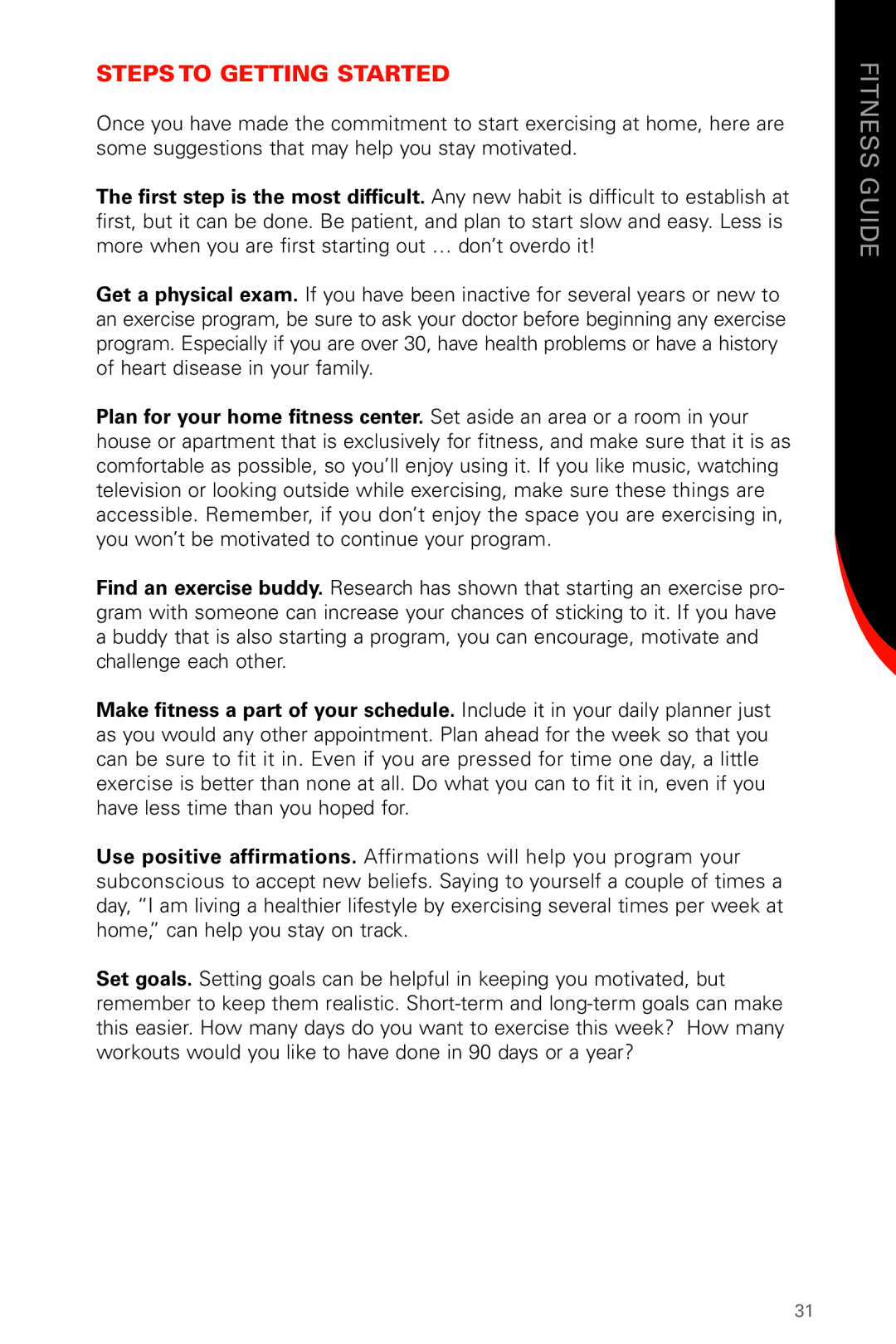Steps to Getting Started
Once you have made the commitment to start exercising at home, here are some suggestions that may help you stay motivated.
The first step is the most difficult. Any new habit is difficult to establish at first, but it can be done. Be patient, and plan to start slow and easy. Less is more when you are first starting out … don’t overdo it!
Get a physical exam. If you have been inactive for several years or new to an exercise program, be sure to ask your doctor before beginning any exercise program. Especially if you are over 30, have health problems or have a history of heart disease in your family.
Plan for your home fitness center. Set aside an area or a room in your house or apartment that is exclusively for fitness, and make sure that it is as comfortable as possible, so you’ll enjoy using it. If you like music, watching television or looking outside while exercising, make sure these things are accessible. Remember, if you don’t enjoy the space you are exercising in, you won’t be motivated to continue your program.
Find an exercise buddy. Research has shown that starting an exercise pro- gram with someone can increase your chances of sticking to it. If you have a buddy that is also starting a program, you can encourage, motivate and challenge each other.
Make fitness a part of your schedule. Include it in your daily planner just as you would any other appointment. Plan ahead for the week so that you can be sure to fit it in. Even if you are pressed for time one day, a little exercise is better than none at all. Do what you can to fit it in, even if you have less time than you hoped for.
Use positive affirmations. Affirmations will help you program your subconscious to accept new beliefs. Saying to yourself a couple of times a day, “I am living a healthier lifestyle by exercising several times per week at home,” can help you stay on track.
Set goals. Setting goals can be helpful in keeping you motivated, but remember to keep them realistic.
FITNESS GUIDE
31
